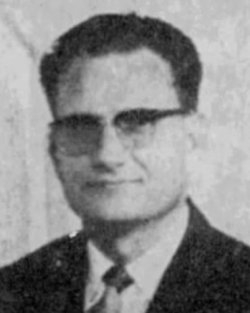
The inward conditions of the rich man and Lazarus are contrasted. One exulted in his wealth; the other was content with grace in his poor afflicted condition. One was a seeker of earthly treasures; the other was a seeker of heavenly treasures. One was selfish and ungodly; the other was a self-sacrificing believer. We learn from the providence of God that worldly prosperity does not prove one’s acceptance with God, and poverty does not prove his abandonment. Furthermore, social elevation does not lead to spiritual-mindedness, and deprivation thereof does not distract from it. The one thing needed was lacking in the life of the rich man. He possessed great riches but had nothing, because he did not have grace. On the other hand, the poor man was the rich man because he was “as having nothing, and yet possessing all things” (II Cor. 6:10). He was poor in worldly possessions but rich because he possessed grace. The rich man was poor in his riches, and the poor man was rich in his poverty.
There was a contrast in the deaths of the rich man and Lazarus. The only thing the two had in common in life was their possession of mortal bodies. But what a change ensued at the moment of death! The record states that the rich man was buried, but nothing is stated about the burial of the poor man. There was no doubt an elaborate funeral service with a long procession of distinguished citizens and professional mourners for the man of wealth (Jer. 9:17; Eccl. 12:5). Such things are highly esteemed among men. Conversely, there is no reference to a funeral for Lazarus, but a convoy of angels carried him to Abraham’s bosom (kolpos, which means close to, near, or bosom). Hence, he became a partaker of the same blessedness with Abraham in paradise. The term “bosom” denotes intimacy in fellowship (Luke 16:22, 23; John 1:18; 13:23). Angels are called “ministering spirits, sent forth to minister for them who shall be heirs of salvation” (Heb. 1:14), and “the chariots of God are twenty thousand, even thousands of angels...” (Ps. 68:17).
The contrast between the rich man and Lazarus after death is one that most people would like to ignore or hope after death to find that hell is only a myth. But the contrast after death is as much a reality as the contrast in either life or death. Although the living have not yet experienced death and the afterlife, Christ, the Author of life and death and who cannot lie, has spoken on the subject: “Now it came about that the poor man died and he was carried away by the angels to Abraham’s bosom; and the rich man also died and was buried. And in Hades he lifted up his eyes, being in torment, and saw Abraham far away, and Lazarus in his bosom” (Luke 16:22, 23 NASB). The poor man who had suffered in time was enjoying the comfort and rest of eternal bliss. Conversely, the rich man who enjoyed the comfort of earthly riches in time was suffering the woes of eternal damnation. The chasm (chasma, a gaping opening, a chasm, or gulf) between the two is eternally fixed. Separation is a distinct feature of judgment (II Thess. 1:9).
Eternity will make both saved and lost more keenly conscious of things than life on earth did. The rich man in hades knew what was going on in three realms: (1) his own, (2) the one in which Lazarus and Abraham were, and (3) the one in which his five brothers lived. The last realm will exist only until time shall be no more. Abraham heard the rich man’s request, but he could render no assistance. He did say to him, “Son, remember.” Memory is the mind’s power of preserving and knowing its own past history. Nothing is ever irrevocably forgotten. One needs only to be subjected to the scene where some particular event took place, and the details of the event, though forgotten for years, will be brought up from his storehouse of memory. Everything put into the memory bank of your computer will be recalled when eternity subjects you to your life’s history. Memory in eternity will embrace all the past life at once. In an instant, one will be able to see the beginning and ending of his whole life’s history side by side. Memory in time is not constant, but it will be in eternity. While this increases the misery of the unrighteous, the righteous will rejoice and praise God throughout all eternity for deliverance from the nature of sin and the sins of nature.